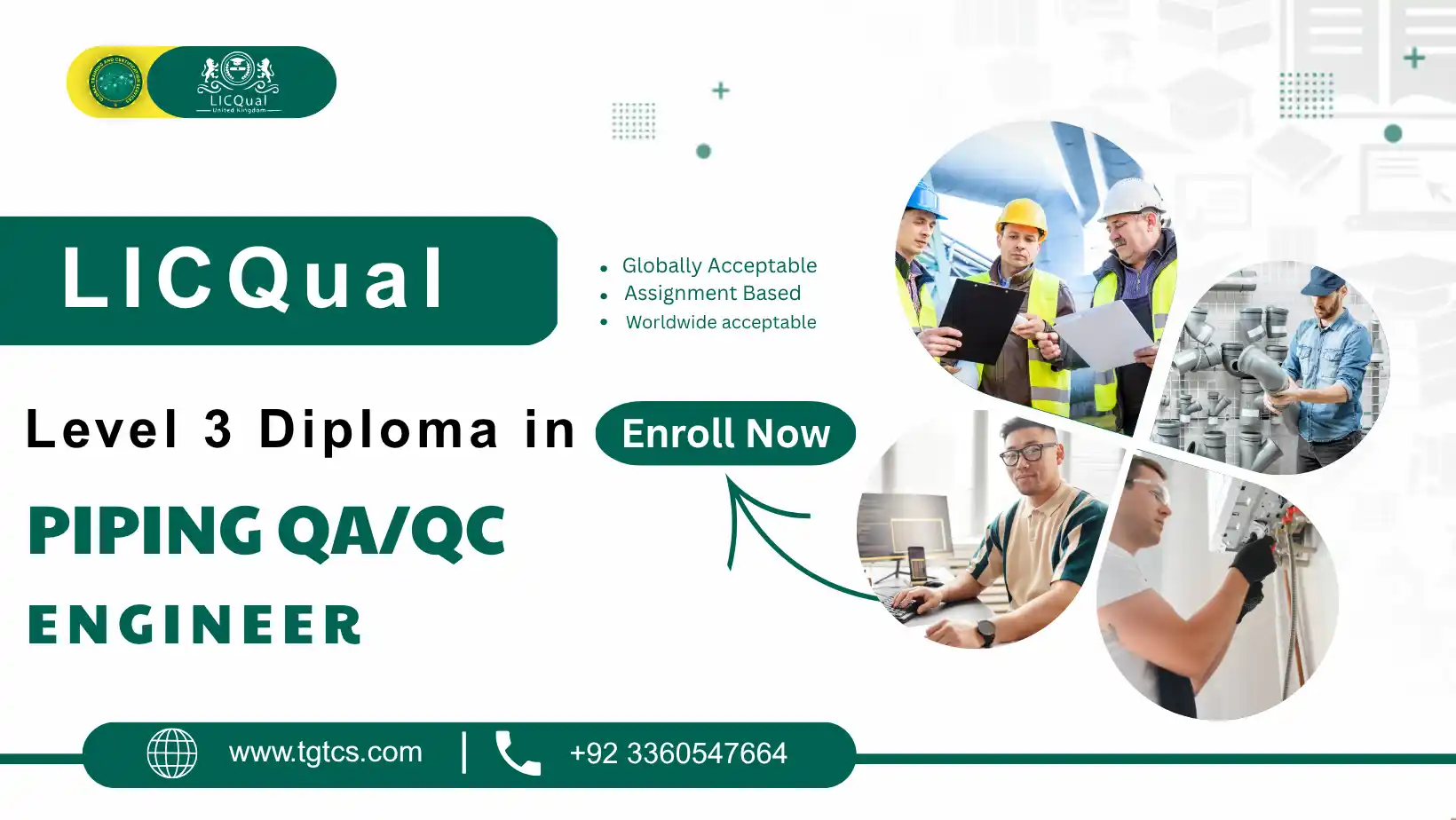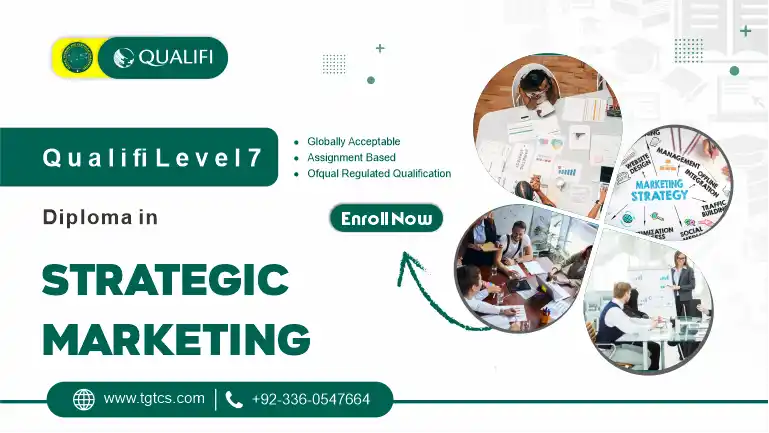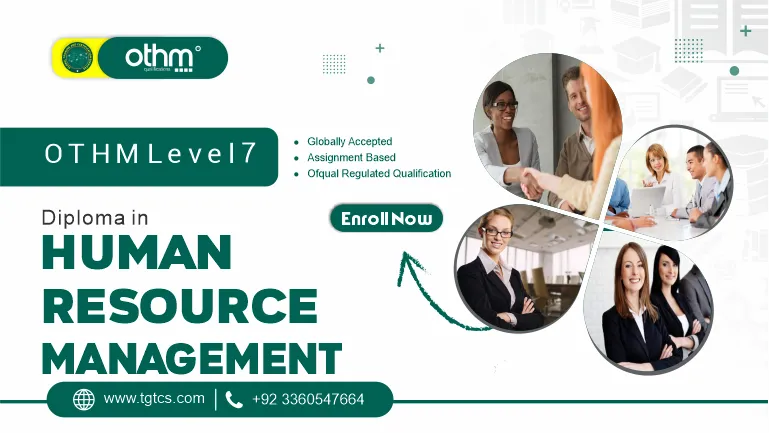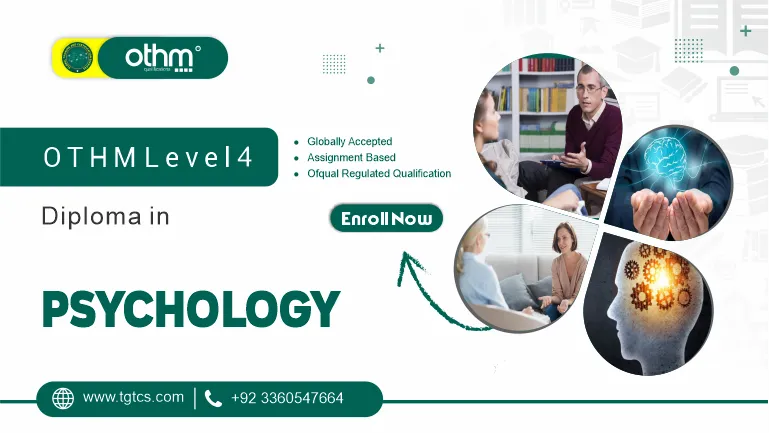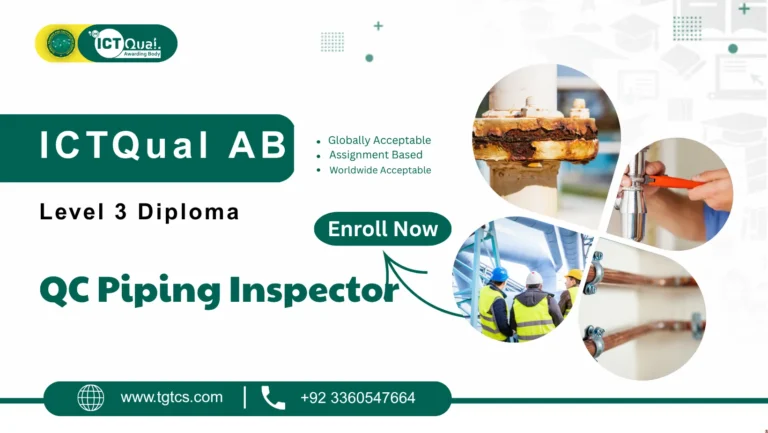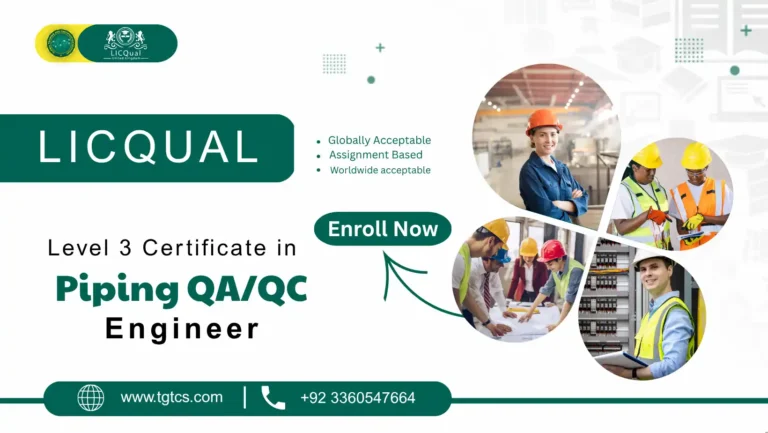LICQual Level 3 Diploma in QA/QC Piping Inspector
The LICQual Level 3 Diploma in QA/QC Piping Inspector is a comprehensive, internationally recognized qualification designed to equip learners with advanced skills and knowledge in quality assurance and quality control for piping and welding projects. This diploma provides a strong foundation for individuals aiming to pursue a professional career in oil & gas, petrochemical, power plant, and construction industries, where QA/QC roles are critical for safety, compliance, and operational excellence.
Through this program, learners gain expertise in piping systems, welding inspection, non-destructive testing (NDT), and QA/QC documentation in line with global standards such as ASME, API, ASTM, and ISO. The diploma ensures that graduates are not only technically proficient but also ready to meet industry requirements for inspection, reporting, and quality management in complex projects.
One of the main advantages of this certification is its international credibility. The LICQual Level 3 Diploma in QA/QC Piping Inspector is British Council verifiable and MOFA & Embassy attested, making it highly valuable for professionals seeking job approval, iqama clearance, and visa processing in Gulf countries and other international markets.
This diploma is ideal for engineers, junior inspectors, and technical professionals who want to enhance their career prospects, gain professional recognition, and lay the groundwork for higher-level QA/QC certifications. It is more than just a qualification—it is a career-boosting credential that opens doors to global opportunities in QA/QC piping inspection.
The Global Training and Certification Services is Approved Training Centre of ICTQual AB UK Ltd
The LICQual Level 3 Diploma in QA/QC Piping Inspector is an internationally recognized qualification designed to provide learners with the practical skills and theoretical knowledge needed to excel in quality assurance and quality control within piping and welding projects. This diploma prepares professionals for entry-to-mid-level QA/QC roles in oil & gas, petrochemical, power plant, and construction industries, ensuring they meet international standards and industry requirements.
Key Highlights of the Course
- Provides comprehensive understanding of piping systems, welding processes, and QA/QC procedures.
- Covers international standards and codes, including ASME, API, ASTM, and ISO.
- Focuses on inspection methods, NDT basics, and QA/QC documentation.
Global Recognition & Verification
- British Council verifiable certification for international authenticity.
- MOFA and Embassy attestation ensures recognition in multiple countries.
- Supports job approval, iqama approval, and visa processing in Gulf and global markets.
Who Should Enroll
- Fresh graduates in mechanical, civil, or industrial engineering seeking a career in QA/QC.
- Junior engineers, inspectors, and technicians aiming to strengthen their professional profile.
- Individuals looking to enter the oil & gas, petrochemical, or construction sectors.
Practical Industry Relevance
- Training aligned with real-world QA/QC processes and project requirements.
- Hands-on knowledge of inspection techniques, reporting, and quality documentation.
- Prepares learners to meet industry demands in safety, compliance, and quality control.
Career Advancement Opportunities
- Entry to junior and mid-level QA/QC positions in local and international companies.
- Builds a foundation for higher-level certifications (Level 4, Level 5 diplomas).
- Enhances employability, credibility, and potential for promotions in QA/QC roles.
Mandatory Unit
- Fundamentals of Piping Systems and Components
- International Codes, Standards, and Specifications
- Welding Processes and Inspection Techniques
- Non-Destructive Testing (NDT) in Piping Inspection
- QA/QC Inspection Procedures and Documentation
- Pressure Testing and Piping Integrity Verification
By the end of this course, applicants will be able to:
1. Fundamentals of Piping Systems and Components
By the end of this unit, learners will be able to:
- Identify and describe various piping system components such as pipes, fittings, flanges, and valves.
- Understand the classification and grading of piping materials based on industrial standards.
- Interpret basic piping drawings, layouts, and isometric diagrams.
- Explain the role of different piping components in system functionality and safety.
2.International Codes, Standards, and Specifications
By the end of this unit, learners will be able to:
- Recognize the purpose and importance of international codes and standards in piping inspection.
- Interpret and apply relevant standards such as ASME, API, ASTM, and ISO.
- Differentiate between various project specifications and understand their application in quality control.
- Ensure compliance with applicable regulatory and contractual requirements.
3. Welding Processes and Inspection Techniques
By the end of this unit, learners will be able to:
- Understand key welding processes including SMAW, GTAW, and GMAW.
- Identify welding symbols, joints, and positions used in piping projects.
- Interpret Welding Procedure Specifications (WPS) and Procedure Qualification Records (PQR).
- Conduct basic visual inspections of welds and recognize common welding defects.
4. Non-Destructive Testing (NDT) in Piping Inspection
By the end of this unit, learners will be able to:
- Explain the principles and methods of common NDT techniques (VT, PT, MT, RT, UT).
- Select appropriate NDT methods based on inspection requirements.
- Interpret NDT results and determine the acceptance or rejection of components.
- Adhere to safety and quality standards during NDT procedures.
5. QA/QC Inspection Procedures and Documentation
By the end of this unit, learners will be able to:
- Develop and follow Inspection Test Plans (ITPs) and quality checklists.
- Maintain accurate and complete inspection records, reports, and logs.
- Document and report non-conformities, and assist in corrective/preventive actions.
- Manage material traceability and ensure proper QA/QC documentation flow.
6. Pressure Testing and Piping Integrity Verification
By the end of this unit, learners will be able to:
- Understand the principles and purpose of hydrostatic and pneumatic pressure testing.
- Prepare piping systems for pressure testing in accordance with safety protocols.
- Monitor and record test procedures and interpret results for integrity verification.
- Identify and report test failures or defects, and suggest corrective actions.
The LICQual Level 3 Diploma in QA/QC Piping Inspector provides learners with the essential skills, professional recognition, and career opportunities needed to succeed in the QA/QC field. This diploma serves as a foundation for career growth and international employability in piping and welding inspection.
1. Professional Recognition
- Internationally respected certificate with British Council verification.
- MOFA and Embassy attestation ensures global credibility.
- Enhances your professional profile in competitive job markets.
2. Career Opportunities
- Provides access to QA/QC roles in oil & gas, petrochemical, and construction industries.
- Increases employability in both local and international markets.
- Acts as a stepping stone to higher-level QA/QC certifications and roles.
3. Technical Knowledge & Skills
- Builds understanding of piping systems, welding processes, and QA/QC procedures.
- Covers international standards like ASME, API, ASTM, and ISO.
- Equips learners to manage inspection documentation and reporting effectively.
4. Global Employability
- Certification recognized by employers across the Gulf, Middle East, and beyond.
- Supports job approval, iqama approval, and visa processing in international markets.
- Enhances long-term opportunities in engineering projects requiring QA/QC expertise.
5. Long-Term Career Growth
- Lays the foundation for progression to Level 4, Level 5, and higher QA/QC diplomas.
- Provides a recognized credential that supports promotions and professional development.
- Ensures continuous career advancement and global employability.
The LICQual Level 3 Diploma in QA/QC Piping Inspector is designed for individuals who want to start a professional career in quality assurance and quality control for piping and welding projects. This diploma is suitable for learners seeking international recognition, practical skills, and career growth in the engineering and construction industries.
1. Fresh Graduates
- Recent graduates in mechanical, civil, or industrial engineering.
- Individuals seeking a recognized entry point into QA/QC roles.
- Learners aiming to build a strong foundation for higher-level QA/QC qualifications.
2. Junior Engineers & Technicians
- Entry-level engineers looking to gain practical QA/QC skills.
- Technicians involved in piping, welding, or fabrication projects.
- Professionals aiming to enhance employability with internationally recognized certification.
3. Career Starters in QA/QC
- Individuals planning to begin a career in quality assurance and inspection.
- Learners seeking hands-on knowledge of piping systems and QA/QC processes.
- Candidates who want a globally accepted credential to enhance job prospects.
4. Industry Professionals Seeking Recognition
- Junior inspectors or supervisors aiming to validate their skills formally.
- Professionals seeking MOFA and Embassy attested certification for international opportunities.
- Employees aiming for career growth and promotion within their organization.
5. Lifelong Learners & Career Builders
- Individuals committed to continuous professional development in QA/QC.
- Learners aiming to progress to Level 4, Level 5, and higher diplomas.
- Professionals looking for a career investment with long-term global value.
Course Overview
Course Level
Level 3
Course Units
6 Units
Credits
60
